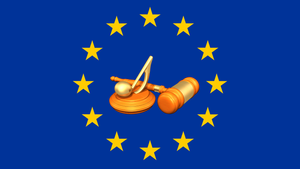Plans to introduce a new streaming royalty for musicians in Belgium by extending the existing principle of performer equitable remuneration to streams have been derailed after the matter was referred to the European Court Of Justice, following legal action by both record labels and streaming services opposed to the new right.
The EU court has been asked thirteen questions about the introduction of a new non-transferable performer right, which was introduced in Belgium as part of the country’s implementation of the 2019 European Copyright Directive.
The music industry is split on whether or not equitable remuneration on streams should be introduced. If it was, a portion of streaming income would flow directly to artists and session musicians through the collective licensing system, as already happens with radio and public performance income.
Currently artists receive streaming royalties via their labels or distributors, subject to the terms of their record or distribution deals. Meanwhile session musicians don’t earn anything from streams.
Equitable remuneration on streaming would be a new revenue stream for all performers. Though the greatest benefit would be felt by session musicians and by artists locked into old record deals that pay lower pre-streaming royalty rates, or who are paying off an advance. Because equitable remuneration flows directly to performers via collecting societies, it can’t be used by labels to pay off unrecouped balances.
AEPO-ARTIS, which represents performer collecting societies across Europe, supports the right and says it is “disappointed” that “the Belgian Court did not reject the arguments of several multinationals that still see paying artists a fair remuneration to be a stain on their profitable business plans”.
However, while involving the EU court delays the introduction of a new performer right in Belgium, it could as yet provide legal clarity that favours the new right, something AEPO-ARTIS acknowledges.
“The Belgian Court has given the European Court Of Justice a once in a lifetime opportunity to confirm that the EU copyright framework is there to provide authors and performers with the highest possible protection possible”, it adds.
Record labels - major and indie - are opposed to ER on streaming. In a statement earlier today, pan-European indie label trade group IMPALA says its members support the performer provisions in the 2019 copyright directive, but Belgium’s implementation of those provisions “introduced new rights beyond the scope of the EU rules”.
Its Executive Director Helen Smith adds, “we have been vocal about the reasons why the type of approach adopted by Belgium would be damaging”. To that end, she adds, “we believe the Belgian court is right to make a referral to the European Court Of Justice. We welcome this outcome and will be examining the judgement closely”.
Organisations representing performers have long argued that many artists and musicians have not fairly benefited from the streaming boom because of old contract terms or industry conventions. Applying ER to streams has been proposed as one solution to that problem.
There are other possible solutions too. IMPALA has campaigned for various other changes to the way streaming works, as well as urging all labels to pay a modern royalty rate on all record contracts. In her statement, Smith notes that IMPALA has “flagged the need for other types of streaming reform and we believe our proposals would help improve artist remuneration”.
The digital platforms also oppose ER on streams because it’s another royalty they have to pay. Ultimately they would try to reduce payments to labels and distributors to compensate for any ER they pay to performer collecting societies. In fact, at least some streaming service licensing deals anticipate future ER obligations and allow for the immediate deduction of ER payments from whatever they pay to labels and distributors.
However, a new ER system would probably increase how much the streaming services pay into the industry in the short term, hence their opposition. So strong is that opposition, when ER was introduced in Uruguay, Spotify threatened to shut down its operations in the country entirely. In response, the government said it would be the responsibility of labels and distributors to pay the ER out of what they receive from the services, so Spotify remained in the market.
In the context of Belgium, the current question is whether or not Belgian law-makers introducing an non-transferable ER right on streaming contravenes EU copyright law - or even the “freedom to conduct a business provision” in the Charter Of Fundamental Rights of the European Union. Supporters of the Belgian plan point out that ER already applies on streaming in some other EU markets - sometimes just on user-upload platforms, sometimes on music streaming too.
In its statement, AEPO-ARTIS says that the questions referred to the EU court “all come down to finding out whether any rule” in any relevant EU directives and charters “prohibits member states to introduce a right that provides artist (and journalists) with a guaranteed and non-transferable right to receive a remuneration when their works are being exploited by streaming and user-generated content platforms”.
The organisation’s General Secretary Ioan Kaes adds, “It is actually pretty astonishing to see how big multinationals like Google, Meta, Spotify, Sony Music Entertainment and Liberty Global are using human rights to argue against the non-transferability of the right of authors and performers, the humans in our industry, to be remunerated for their work” .

